Basic subtraction Math Worksheets for Ages 4-6
5 filtered results
-
From - To
Our Basic Subtraction Math Worksheets for ages 4-6 offer engaging and educational resources to help young learners master early math skills. These worksheets are designed to make subtraction fun and straightforward. With colorful illustrations and simple problems, children can practice basic subtraction while enhancing their problem-solving abilities and confidence in math. Perfect for both classroom use and at-home practice, our worksheets provide the foundational tools kids need for future academic success. Visit Kids Academy to explore and download our diverse collection tailored to young minds, paving the way for a lifelong love of learning.
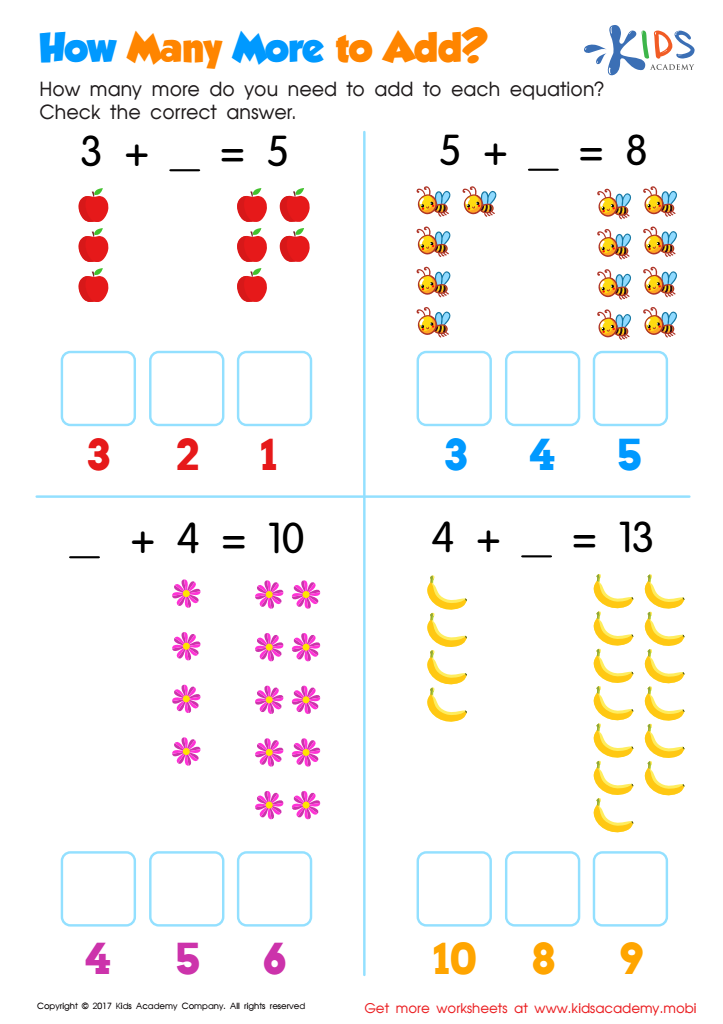

How Many More to Add Worksheet
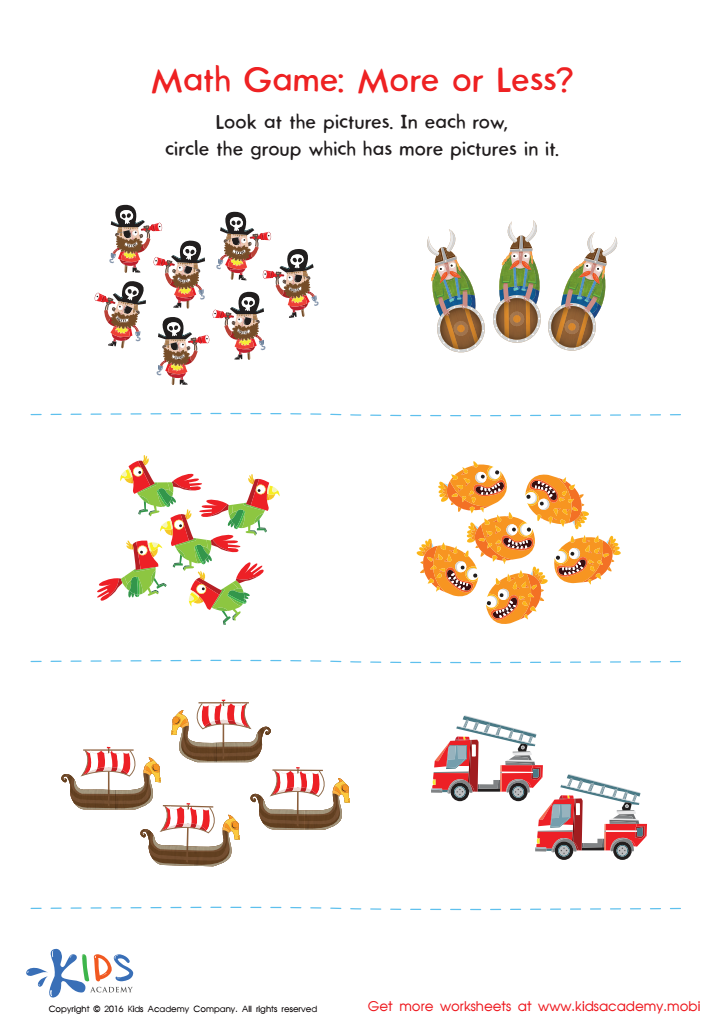

More or Less Worksheet
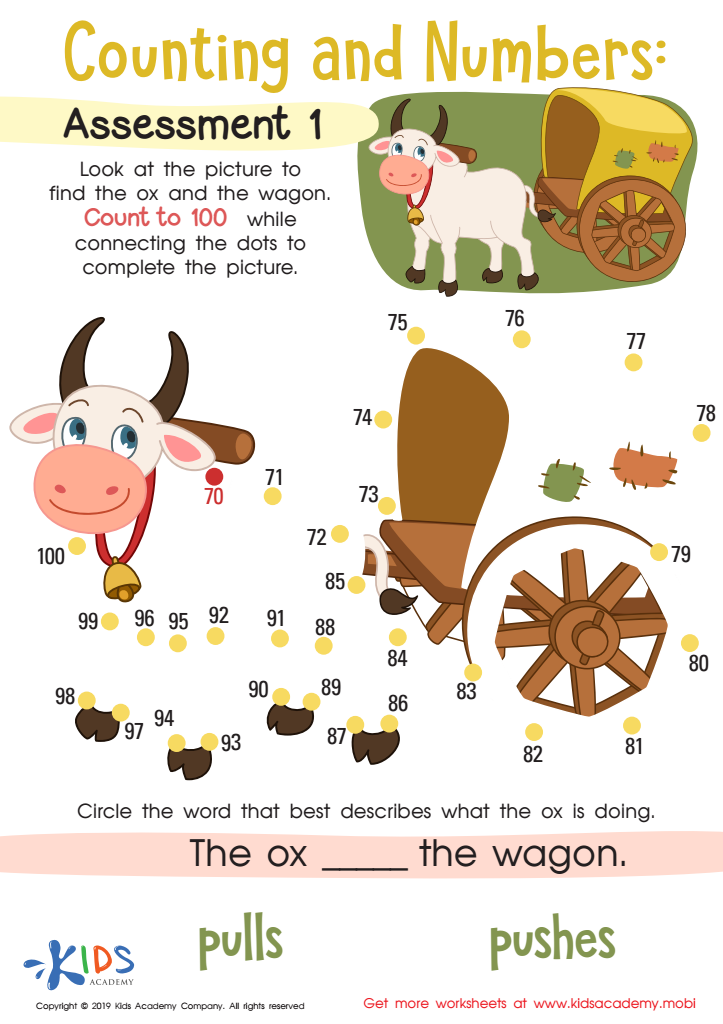

Counting and Numbers: Assessment 1 Worksheet
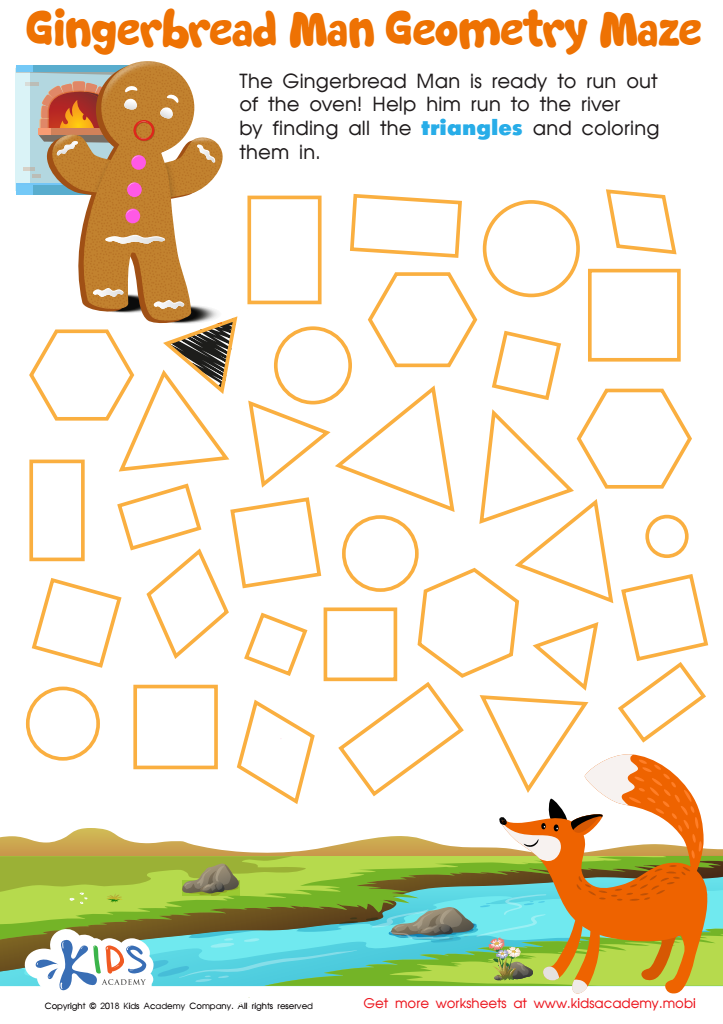

Gingerbread Man Geometry Maze Worksheet
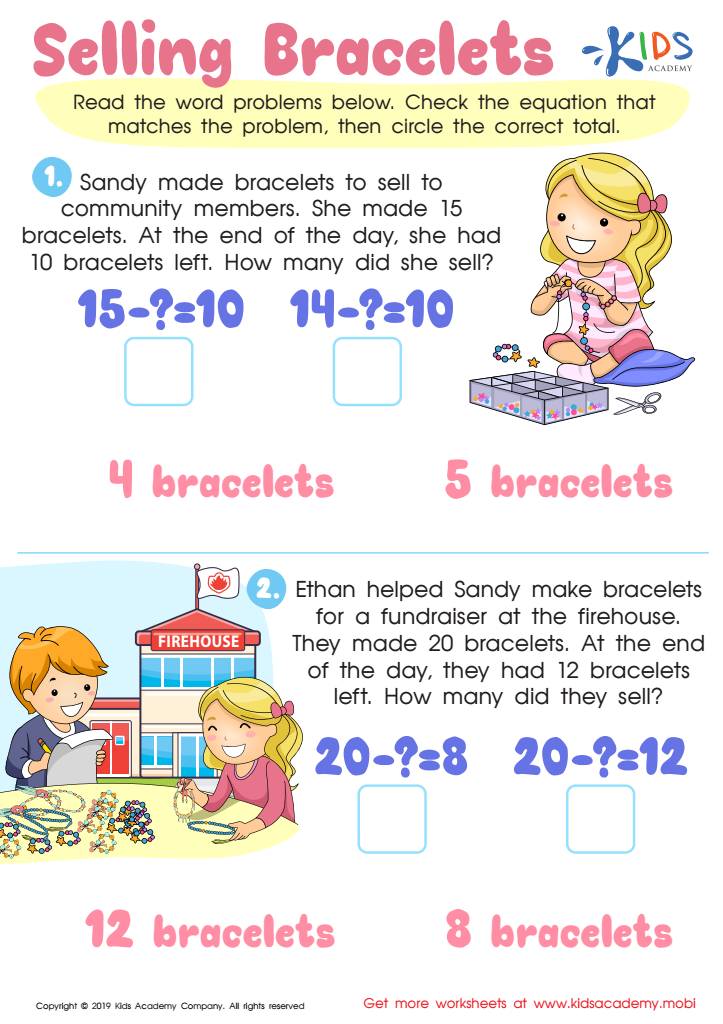

Selling the Bracelets Worksheet
Understanding basic subtraction by ages 4-6 is critical in laying a foundation for lifelong learning and cognitive development. At this early stage, children are naturally curious and receptive, making it an ideal time to introduce fundamental mathematical concepts like subtraction. Subtraction teaches kids how to think logically and solve problems, which are essential skills both inside and outside the classroom.
Mastering subtraction aids in developing number sense, which is the ability to understand, relate, and connect numbers. This skill is crucial for more complex mathematical concepts they will encounter later on, such as division and multiplication. It also strengthens their counting abilities and comprehension of quantities, helping them grasp real-world applications like understanding time, handling money, and measuring objects.
Additionally, engaging with subtraction can boost a child’s confidence and enthusiasm for learning. Success in small challenges builds self-esteem, encouraging them to tackle more complex tasks. By focusing on these core skills at an early age, parents and teachers set students up for academic success. They help foster a growth mindset, evidenced by perseverance and a positive approach to problem-solving, which extends far beyond mathematics into all areas of learning and life.
 Assign to My Students
Assign to My Students






%20(1).jpg)














